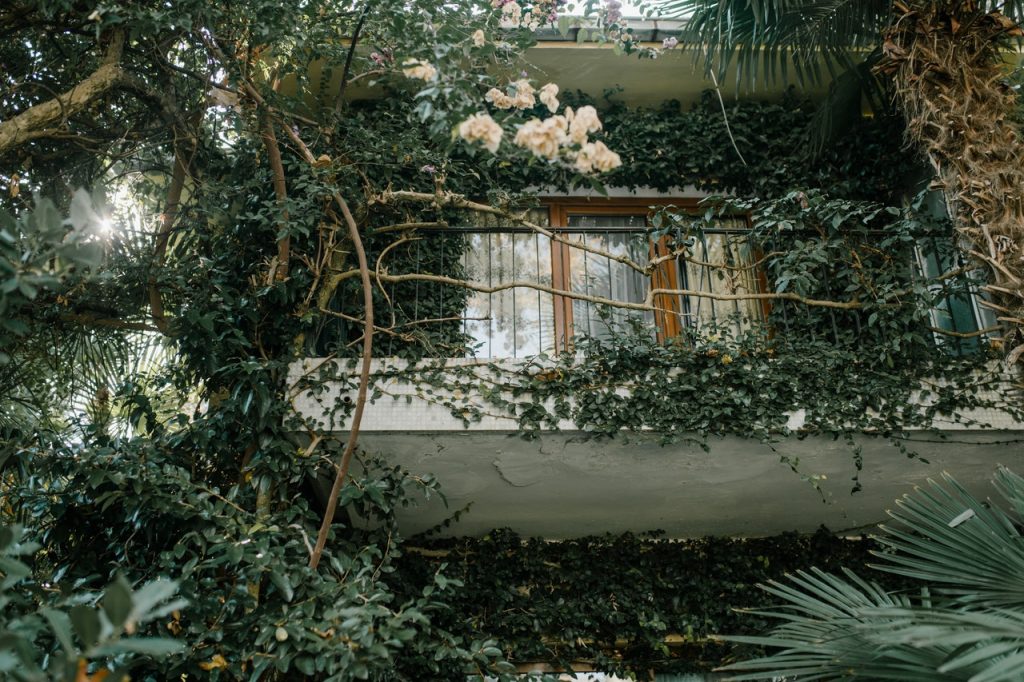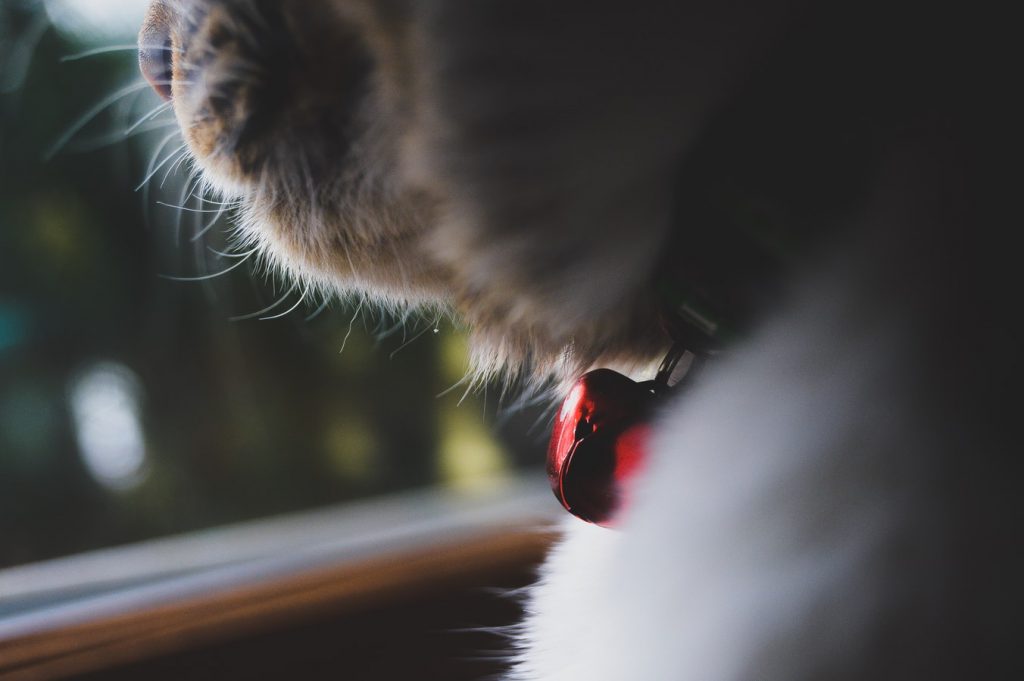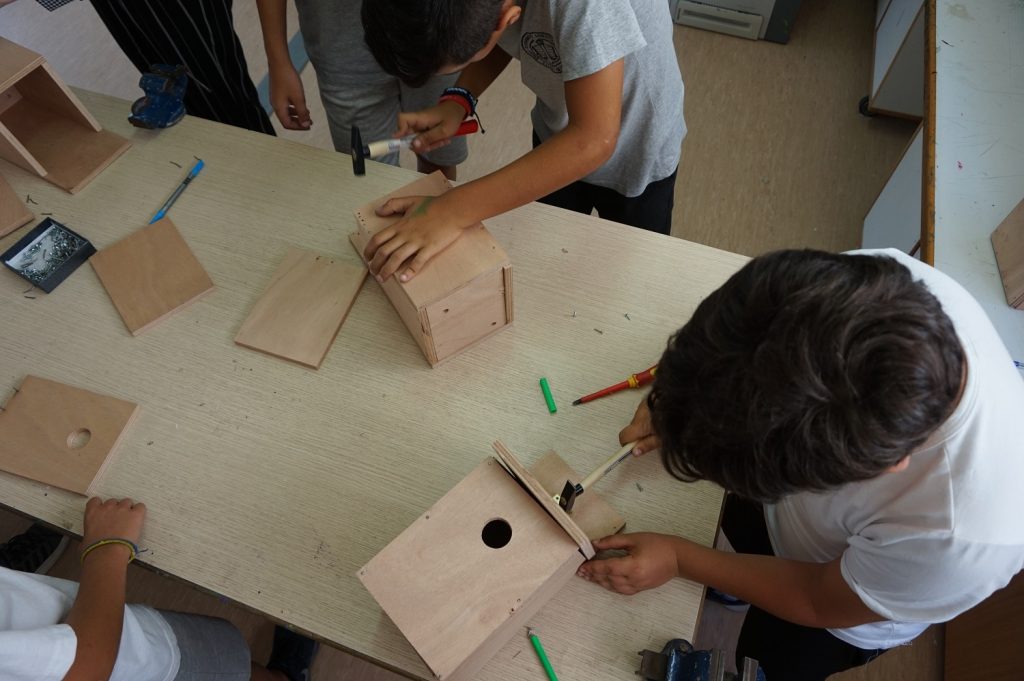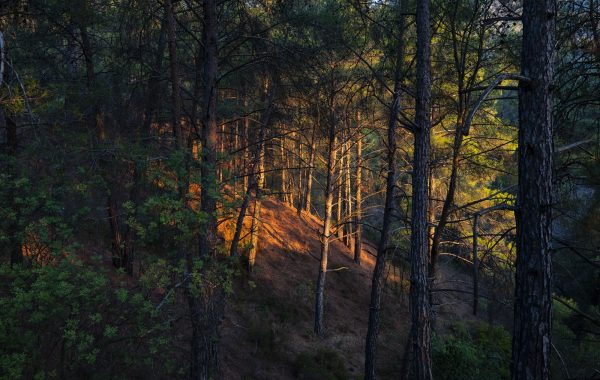If you love them, leave them alone
It can be exciting to find a bird nesting in your garden or local area, but once you discover a nest’s location, it’s important to leave it alone. If you get too close, you could risk damaging it – even loud noise and disturbance could be enough to make parents abandon their nest. What’s more, you may be leaving a scent trail for predators to follow straight to an easy snack. If the nest is on the ground, remember the area and keep a good distance from it on future visits. In urban areas, scientists recommend keeping at least 60 metres away from the nests of large birds such as raptors. But you can still enjoy watching their antics through your binoculars…
Let that garden grow!

Trees, hedges, grassy areas, undergrowth – all of these have cosy nooks where birds love to raise their young. If you see a bird building a nest in one of these places, don’t prune or cut it until breeding season is over. For Cyprus, this means avoiding trimming trees or shrubs between February and August.
Keep pets indoors

We may love our gentle, purring feline friends, but cats become cold-blooded hunters when they’re out on the prowl. Because they are not a natural part of the local ecosystem, they can have a devastating effect on garden bird populations – especially for birds nesting near the ground. So keep your cat indoors, or create an enclosed outside area or “catio”. If the cat must go out, then you can have your cat wear a breakaway collar with a bell on before it goes out, so that birds can be warned by the sound. Dogs have also been known to eat eggs and chicks, so keep them on a lead anywhere near ground-nesting birds.
Build a predator-proof bird box

Native predators are a natural part of the ecosystem – but if you’re worried about invasive species, or there’s a rare bird in your area that you’d like to give some extra help, there are plenty of modifications you can make to an ordinary nesting box to prevent predators from gaining access. You could reinforce the entrance with metal to stop invaders from gnawing it wider, or install a tube tunnel about 5-8 centimetres long instead of a hole. Extending the roof about 12 centimetres past the front and sides of the box will make it harder for predators to clamber in from above. Location is also important: ideally, the box should be at least three metres from the ground and far away from any buildings, trees or bushes that predators can climb up. Fixing your box to a post made of smooth metal, rather than wood; this will baffle the most proficient of climbers! For instructions on how to build and install a simple bird box, please click here.
See a nest in danger? Say something!
Many countries have laws in place to protect nesting birds. In Cyprus, it is illegal to disturb nesting birds or their nests. If you see someone destroying a nest, or if an important nesting habitat in your local area is about to be built on or destroyed, inform the Game and Fauna Service or BirdLife Cyprus.
Support nature conservation
Nature conservation groups like BirdLife International, the organiser of Spring Alive, are working to protect the most important habitats for breeding birds. By donating, volunteering or even just raising awareness about nature conservation, you are helping to safeguard your favourite species for generations to come. Learn more here.
This article, which has been slightly modified for the Cyprus situation, is part of BirdLife International’s Spring Alive programme, which aims inspire and educate children across Africa and Eurasia about the wonders of nature and bird migration. The 2021 Spring Alive season has once again been made possible with the support of HeidelbergCement, having been in partnership with BirdLife since 2011, collaborating globally to implement local actions to minimise its impacts and improve management of biodiversity within quarries.




